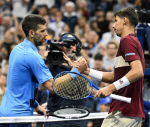You are here
The politics of the Trump trials
Aug 12,2023 - Last updated at Aug 12,2023
CHICAGO — For many Americans, Donald Trump’s mounting legal troubles confirm the deeply corrupt and repulsive character of the man. But there is a significant danger that the trials will help Trump rather than hurt him. As contests between the government and a loosely formed but powerful opposition group, they may come to be seen as political trials, and will play directly into the hands of Trump and his allies.
Though Trump is the first former US president to be indicted, political trials, trials in which legal proceedings are used to remove political opponents from power or prevent them from taking it, have a long and storied history of backfiring on their perpetrators. Charles I of England and Louis XVI of France lost their heads after such trials, but their descendants (for Louis XVI, via his brothers) went on to inherit the throne after periods of turmoil. Trials that were supposed to justify the rule of revolutionaries by publicising the kings’ repellent behaviour ultimately generated sympathy for them and exposed the dubious legal pretext for their executions.
Democracy was supposed to provide for a more orderly system of succession. But the US founders understood that a democratic government could abuse the legal system to oppress its opponents, so they established constitutional rights, an independent judiciary and other institutional barriers to safeguard political competition.
The system worked reasonably well, frustrating some of the founders’ own attempts to prosecute political opponents. Eventually, a political norm was established to ensure that major political figures were protected from spurious legal charges. Later administrations even had trouble prosecuting lesser-known dissenters who violated the law in politically tinged cases (these were mostly critics of US involvement in various wars, especially in Vietnam). These defendants sometimes won hopeless-seeming cases by turning the tables on the prosecutors and making the government look like the guilty party.
Trump and his allies have plainly adopted this strategy. The story they tell is that Trump was a great president but powerful people in the shadows wanted to stop him, and thus engineered a fraudulent election to remove him from office. That same cabal, we are told, is now using law enforcement and the courts to prevent him from reclaiming the White House. As Trump puts it, “If you can’t beat him, you persecute him or you prosecute him.”
In conventional legal terms, this strategy cannot possibly win, because none of the laws under which Trump was indicted (or any other law) allows for a “deep state” defence. Still, such a strategy can be quite effective both practically and politically. After all, the US constitutional protections for criminal defendants were created precisely to assuage popular distrust of government authority and the fear that the new US government after the War of Independence would repeat the British colonial authorities’ abuses by wielding criminal law against its political opponents.
Hence, defendants enjoy an endless array of procedural protections, not least the jury requirement. The juries in Trump’s trials will have to reach unanimous verdicts to convict him, and even jurors who are not die-hard Trump fans may hesitate before wholeheartedly believing the prosecutors. Trump’s lawyers will have reminded them again and again that the prosecution represents an administration whose leader stands to benefit more than anyone else from Trump’s political demise.
Knowing this, the prosecutors will bend over backwards to show procedural fairness, since any corner-cutting will play into the narrative of an oppressive government stamping out its perceived enemies. And judges will insist that prosecutors dot their i’s and cross their t’s, lest they, too, be accused of partisan bias.
Trump’s lawyers will take advantage of these scruples by filing objections to every prosecutorial move, and reminding the court of the burdens of defending against (and preparing for) multiple prosecutions during a presidential campaign. As the motions pile up, there will be delays, and these will benefit Trump by pushing the trial proceedings and appeals into the thick of the campaign, and potentially past Election Day.
Moreover, the legal theory underpinning the indictment for Trump’s alleged role in a conspiracy to overturn the 2020 election relies on vague laws that have never before been used to punish someone for such a scheme. Equally, the stronger legal theory in the case involving Trump’s misuse of confidential documents will strike many people, including, possibly, some judges and jurors, as a pretext for blocking him from the presidency.
Even jurors inclined to accept Trump’s guilt may balk at convicting a presidential candidate for failing to return confidential documents that most Americans may end up authorising him to mishandle again. As the election nears, these worries will multiply.
Judges will worry even more. As legal proceedings draw out, the very existence of multiple trials burdening one of two candidates for the presidency will appear to interfere with the greater objective of a free and fair election. Suppose Trump is acquitted on all counts and loses the election. Will his inevitable argument that yet another election was stolen from him, this time by a criminal justice system that defamed, distracted, and burdened him with spurious prosecutions, appear unreasonable to the public?
In their efforts to block a demagogue from retaking the presidency, the Democrats risk earning the reputation as the first party in American history to use prosecutions to defeat an opponent for the presidency. If that happens, the Republicans will have a martyr in Trump and a politically explosive issue on which to campaign long into the future. Just for this reason, the courts may step in and delay or suspend the trials as Election Day nears, handing a triumph to Trump — and leaving the Democrats looking both underhanded and inept — at a critical point in his campaign to retake his presidency.
Eric Posner, a professor at the University of Chicago Law School, is the author of “How Antitrust Failed Workers” (Oxford University Press, 2021). Copyright: Project Syndicate, 2023. www.project-syndicate.org












